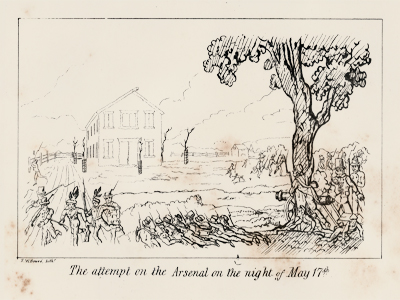
This select digital edition, drawn from the collection of Henry A.L. Brown, provides educators and students alike with a unique opportunity to examine the views of those who opposed Providence attorney Thomas Wilson Dorr and his attempt to reform the state's archaic governing structure in the spring of 1842. His opponents were as passionate about maintaining law and order as he was about bringing Rhode Island into the modern era and destroying the vestiges of antiquity. Despite the profound political polarization that gripped the state, there were politicians, foremost of who was former Gov. John Brown Francis, that urged both sides to sit down at the negotiating table and find a compromise. Francis argued that he "was in favor of letting the People" vote soon after he witnessed the large gathering of suffrage supporters in spring of 1841 on Jefferson Plain in Providence. After the Landholders' Constitution was narrowly defeated in March 1842, Francis urged charter officials to compromise but his plea fell on deaf ears. The letters selected here reflect the moderate faction within the Law and Order party; had this moderate voice been heeded Rhode Island's Dorr Rebellion would have turned out quite differently. With this digital collection of letters now available a seldom explored aspect of the rebellion is available to Rhode Island educators, affording them with a unique opportunity to bring the full history of the Dorr Rebellion into the classroom. The letters make clear that there were alternative approaches that politicians might have taken. Examining these options for settling the constitutional crisis in Rhode Island is a worthwhile endeavor for students because these are precisely the type of questions men had to answer when they selected one course of action rather than another.
To learn more about John Brown Francis and opposition to the Dorr Rebellion read this contextual essay by Dr. Erik Chaput and Russell DeSimone.